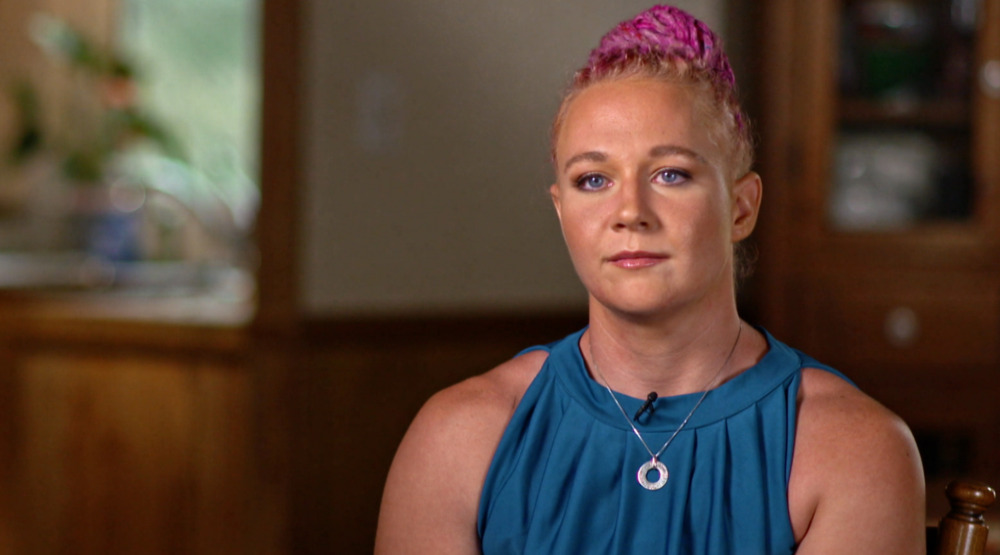Reality Winner's story is a powerful narrative that has captured the attention of the world, shedding light on the complex relationship between national security, whistleblowing, and justice. Her actions have sparked debates about transparency, accountability, and the moral obligations of individuals working within government agencies. In this in-depth article, we will explore her life, her decision to leak classified information, and the ramifications of her choices.
Reality Winner's case is not just another whistleblower story; it is a testament to the challenges faced by individuals who prioritize truth over personal safety. Her actions have raised important questions about the balance between protecting sensitive information and ensuring that the public is informed about potential government misconduct.
This article will delve into her biography, the legal proceedings surrounding her case, and the broader implications of her actions. By understanding her journey, we can gain valuable insights into the complexities of whistleblowing in the modern era.
Read also:Jacqueline Toboni A Rising Star In The World Of Entertainment
Table of Contents
- Biography
- Details of the Leak
- Legal Proceedings
- Consequences of Whistleblowing
- Public Opinion and Reaction
- Ethical Debate
- Historical Context
- Government Response
- Support System
- Future Implications
Biography
Data and Personal Information
Reality Winner is a former intelligence contractor whose decision to leak classified information has made her one of the most prominent whistleblowers of our time. Below is a summary of her personal information:
| Full Name | Reality Leigh Winner |
|---|---|
| Date of Birth | March 25, 1991 |
| Place of Birth | TX, United States |
| Profession | Former Intelligence Contractor |
| Notable Event | Leaking classified NSA document to the media |
Reality Winner grew up in Texas and served in the U.S. Air Force before transitioning to work as an intelligence contractor. Her background in national security provided her with the skills and knowledge necessary to understand the implications of the information she eventually leaked.
Details of the Leak
What Was Leaked?
In 2017, Reality Winner leaked a classified National Security Agency (NSA) document to the media. The document detailed Russian interference in the 2016 U.S. presidential election. This leak brought significant attention to the issue of foreign cyberattacks on U.S. democratic processes.
- The document revealed that Russian military intelligence had targeted a U.S. voting software supplier.
- It provided evidence of Russia's attempts to influence the election outcome.
- The leak highlighted the vulnerabilities in the U.S. electoral system.
Winner's decision to leak the document was motivated by her belief that the public had a right to know about these critical issues.
Legal Proceedings
Charges and Trial
Reality Winner was arrested shortly after the leak and charged under the Espionage Act. Her trial became a focal point for discussions about whistleblowing and the legal consequences faced by those who expose government secrets.
- Winner pleaded guilty to one count of violating the Espionage Act.
- She was sentenced to over five years in federal prison.
- Her case drew attention to the harsh penalties faced by whistleblowers in the United States.
The legal proceedings against Winner raised questions about the fairness of the Espionage Act and its application to whistleblowers.
Read also:Gianina Love Is Blind Unveiling The Story Behind The Reality Star
Consequences of Whistleblowing
Personal and Professional Impact
Whistleblowing often comes with significant personal and professional consequences. Reality Winner's case is no exception:
- She lost her job and faced financial difficulties.
- Her personal freedom was restricted due to her imprisonment.
- She became a symbol of the risks whistleblowers take to expose the truth.
Despite these challenges, Winner's actions have inspired others to consider the importance of transparency and accountability in government operations.
Public Opinion and Reaction
Support and Criticism
Reality Winner's case generated a wide range of reactions from the public:
- Supporters viewed her as a hero who exposed critical information about foreign interference.
- Critics argued that her actions compromised national security.
- Her case sparked debates about the balance between protecting classified information and ensuring public awareness.
Public opinion on whistleblowing is often divided, reflecting the complexities of the issue.
Ethical Debate
Moral Obligations and Dilemmas
Reality Winner's decision to leak classified information raises important ethical questions:
- Do individuals have a moral obligation to expose government misconduct, even if it means breaking the law?
- How should society balance the need for transparency with the need for national security?
- What are the ethical implications of prosecuting whistleblowers under laws originally intended to combat espionage?
These questions challenge us to reconsider the role of whistleblowers in a democratic society.
Historical Context
Whistleblowers in History
Reality Winner's case is part of a long history of whistleblowing in the United States:
- Julian Assange and WikiLeaks exposed classified information on a global scale.
- Edward Snowden revealed extensive surveillance programs by the NSA.
- Daniel Ellsberg leaked the Pentagon Papers, exposing government deception during the Vietnam War.
Each of these cases highlights the ongoing struggle between transparency and secrecy in government operations.
Government Response
Reaction and Policy Changes
The U.S. government's response to Reality Winner's leak reflects broader policies toward whistleblowers:
- The government pursued aggressive legal action against Winner under the Espionage Act.
- There have been calls for reforming whistleblower protection laws to better safeguard those who expose wrongdoing.
- Government agencies continue to grapple with the challenges of balancing transparency with security.
Winner's case has contributed to ongoing discussions about the need for policy changes in this area.
Support System
Advocates and Organizations
Reality Winner has received support from various organizations and individuals:
- Amnesty International and other human rights groups have advocated for her release.
- Legal teams and supporters have worked to raise awareness about her case.
- Public figures and activists have spoken out in favor of whistleblowers like Winner.
This support network highlights the importance of solidarity in defending those who expose the truth.
Future Implications
Lessons and Looking Ahead
Reality Winner's story has significant implications for the future of whistleblowing:
- It underscores the need for stronger protections for whistleblowers.
- It highlights the importance of public awareness about government actions and policies.
- It challenges society to rethink its approach to transparency and accountability.
As we move forward, it is crucial to learn from cases like Reality Winner's and work toward a more just and transparent society.
Conclusion
Reality Winner's story is a powerful reminder of the courage required to expose the truth in the face of adversity. Her actions have sparked important discussions about whistleblowing, national security, and the role of individuals in holding governments accountable. By understanding her journey, we can better appreciate the complexities of these issues and work toward creating a more informed and just society.
We invite you to share your thoughts on this article and explore other content on our site. Your feedback and engagement are vital in continuing the conversation about transparency, accountability, and justice.
For further reading, consider exploring resources from reputable organizations such as the American Civil Liberties Union (ACLU) and the Government Accountability Project (GAP), which provide valuable insights into whistleblower rights and protections.


